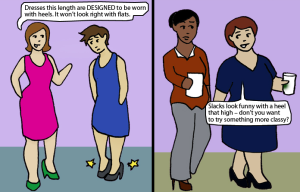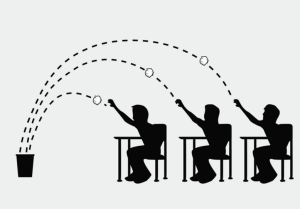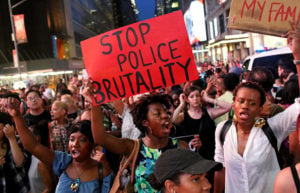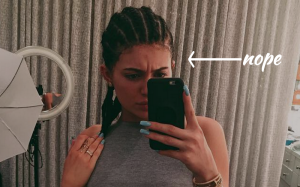Once, many years ago, I got into a conversation with a colleague of mine after the passage of yet another law restricting abortion access.
We both described ourselves as pro-choice, and I tended to feel like we were on the same page politically. But as we lamented the situation, she said, “It’s just so wrong, having to jump through even more hoops when you’re already dealing with the most traumatizing thing a person ever has to go through.”
The thing was, while I agreed that this new impediment was definitely so wrong, I wasn’t about to label abortion itself as inherently damaging – let alone as the most traumatizing thing a person ever has to go through.
But for so many people, including a lot who identify as pro-choice, there remains a sense that abortion must be deeply harmful on a range of levels.
The result is that even for people who support reproductive rights, abortion is still often presented as a necessary evil. But this presentation stigmatizes and marginalizes anyone who has an abortion. And that anyone includes an awful lot of people, since as we know, almost a third of women will have an abortion by the time they’re 45.
Considering all of this, it’s uniquely important to think about how we talk about abortion with teens, both because adolescents are particularly vulnerable to restrictions on abortions, and also because teens deserve the space to develop their own views on the procedure.
But developing those views can be really hard to do when almost all conversations about abortion use judgmental language or rely on enduring myths about the procedure that so many of us just accept as fact.
So here are five things pro-choice parents should keep in mind when talking to their teens about abortion if they want to help advance the conversation.
1. Be Wary of Creating a Hierarchy of ‘Good’ and ‘Bad’ Reasons for Abortion
In many ways, even people who are pro-choice often feel that they have to qualify their views by positioning them against how much worse things would be if abortion were fully illegal.
For example, we’re often warned about the horrors of the days before Roe v. Wade and are reminded that criminalizing abortion doesn’t make it go away, but only pushes the practice underground.
The tone of this conversation is often one that draws from a Clinton-era view that abortion should be safe, legal, and rare.
In this narrative, the focus on making abortion rare positions any abortion as the lesser of two evils. The first evil is abortion itself, and the second is what would happen if a person was denied this service.
Additionally, according to Dr. Tracy Weitz, Director of the Advancing New Standards in Reproductive Health program at the University of California – San Francisco, focusing on the importance of rarity in abortion also separates “good” abortions from “bad” ones.
As she writes in an article in the Journal of Women’s History, “‘Rare’ suggests that abortion is happening more than it should, and that there are some conditions for which abortions should and should not occur.”
Yet there are plenty of times when an abortion should occur, and not just under extreme circumstances, like in cases of rape or incest, or to save the life of a pregnant person, which are often used as the examples that can justify the need for this procedure.
This division, between necessary abortions (see above) and unnecessary abortions (pretty much every other situation) is reminiscent of the early characterization of the “innocent victims” of AIDS (eg: child hemophiliacs who had contracted HIV through blood products) that automatically set up all others with the virus as guilty.
Today, even among those who support abortion rights, we are often in a similar place of division.
For that reasons, a better view of abortion is the one that Tracy Weitz espouses: namely, that abortion should become safe, legal, accessible, and destigmatized.
2. Be Careful Not to Position Abortion as an Inherently Difficult Decision
Despite what we’re often told, abortion isn’t always a difficult decision. And abortion doesn’t have to always be presented as a painful choice or something that no one would want to go through unless they utterly had to.
Presenting abortion as if it’s never anything but a wrenching decision can make teens question something they feel secure in or wonder what’s wrong with them if they feel confident and comfortable about having an abortion.
And this isn’t just something those opposed to abortion do. Even the strongest supporters of abortions rights tend to present abortion in this way.
As Janet Harris, the president of Upstream Analysis, a news and social-media analysis firm, writes in the Washington Post:
“Today, when advocates on both sides of the debate talk about the decision to have an abortion, they preface their statements with adjectives such as ‘difficult,’ ‘hard or ‘reluctant.’ For anti-abortion conservatives, the reason for using such language is clear: Abortion is murder, they contend, but characterizing [someone] who has one as a murderer is a bit, well, harsh. A more charitable view is to assume that [they] must have struggled with making this immoral choice. Pro-choice advocates use the ‘difficult decision’ formulation for a similar reason, so as not to demonize [people who have abortions]. It also permits pro-choice candidates to look less dogmatic.”
For many teens, abortion is a far less complicated decision than it may be for an adult who can be more likely to be able to actually imagine having (or raising) a child.
But since the average teen is nowhere near that place (and many simply want the situation rectified), far from feeling conflicted about having an abortion, many are actually pretty sure from the get-go that this is what they want to do.
That is a normal and natural response and one that should not be discounted.
3. Don’t Assume That an Abortion Will Damage a Teen’s Mental Health
Different people have different feelings about abortions. But a teen who knows that they want to terminate a pregnancy, and is able to do so on their own terms, isn’t going to have a serious mental health issue triggered as a result.
Indeed, a study by researchers from Oregon State University found that teenagers who have abortions are no more likely to become depressed or have low self-esteem than are their peers whose pregnancies do not end in abortion.
What can be much more damaging to a teen’s mental health than simply having an abortion is being forced to continue an unwanted pregnancy. Or having to navigate the incredibly difficult path and overcome the endless barriers put in place to deter minors from accessing this service.
Parents who are concerned about the effects of abortion on a teen’s mental health would do better to provide a teen with accurate information about the procedure and then to help them obtain one, if wanted.
4. Get Your Facts About Abortion Right
Do you really know what you are talking about when you describe abortion options? A lot of people don’t. So let’s tackle with some common misperceptions.
The first one? There is no such thing as “partial birth” abortion. And that stuff about fetal pain, post traumatic abortion syndrome, and infertility as a complication of the procedure? Yeah, those things don’t exist either.
What does exist for a lot of teens are complicated laws requiring parental notification or permission for the procedure, and numerous other barriers like waiting limits, a lack of abortion providers, and exorbitant costs related to getting an abortion.
Even the idea that a judicial bypass, where a judge overrules the need for a teen’s parents to be involved in an abortion, isn’t really based in reality since getting one is basically a humiliating exercise in futility, as they’re next to impossible to actually obtain.
Ultimately, the reality for a lot of American teens is that abortions are just so hard to get that a lot of the worries people have about their effects on minors are little more than thought exercises.
5. Talk About Abortion Like You Would About Any Other Reproductive Health Choice
Most people who call themselves pro-choice can discuss other aspects of reproductive and sexual health in neutral terms and without apology. That’s true when it comes to everything from hormonal birth control to the HIV prevention drug, Truvada.
Sure, there are those who take moral issues with these medications. But the conversations are rarely as fraught as they are when it comes to abortion.
Yet for American teens growing up in this climate, abortion often seems likes an issue that must be so dangerous and damaging that it requires separate rules to govern it and a complicated discourse to explain it.
And while this is how the reality of the abortion fight has largely played out, pro-choice parents can help change this by presenting the matter to their teens in far less contentious terms.
In all fifty states, abortion is a legal medical procedure. It’s not a something dangerous and it is not a criminal act. We need to remember this when we talk to teens about pregnancy termination.
We also need to consider the language we use and to do a few reality fact checks before spouting off about something we may be misinformed on.
***
There’s a lot to fight for when it comes to abortion.
But hopefully, by taking these steps with our own kids, we will help create a more secure path forward on abortion rights for the next generation.
Abortion is a complicated issue for teens, but not always for the reasons parents think. We need to continue to fight to remove the legal and social barriers to this medical procedure and towards reframing the abortion conversation.
Doing this will go a lot further towards improving teen health than will treating the procedure as something taboo and tragic, and to be avoided at all costs.
[do_widget id=’text-101′]
Ellen Kate is a Contributing Writer for Everyday Feminism. She’s a health educator, sometimes writer, and mom. She has worked at Manhattan’s Museum of Sex, developed sex education curricula in Mumbai, India, and run HIV prevention programs for at-risk teens in the South Bronx. Currently, Ellen runs a middle and high school health education program and teaches human sexuality at Brooklyn College. More of Ellen’s writing can be found here. Follow her on Twitter @ellenkatef.
Search our 3000+ articles!
Read our articles about:
Our online racial justice training
Used by hundreds of universities, non-profits, and businesses.
Click to learn more





















